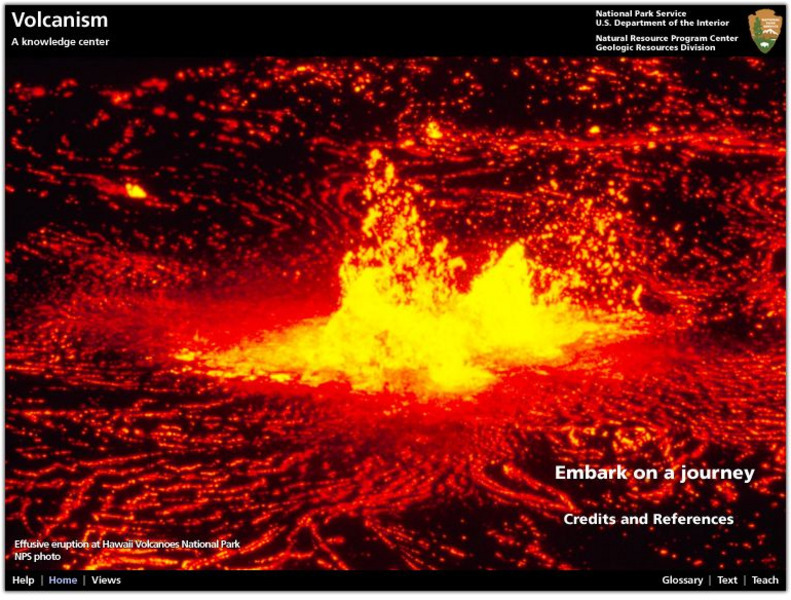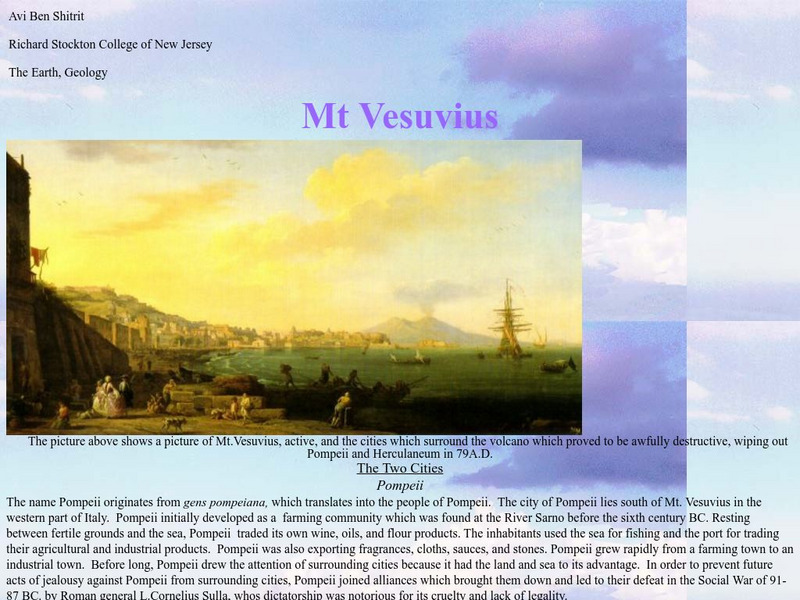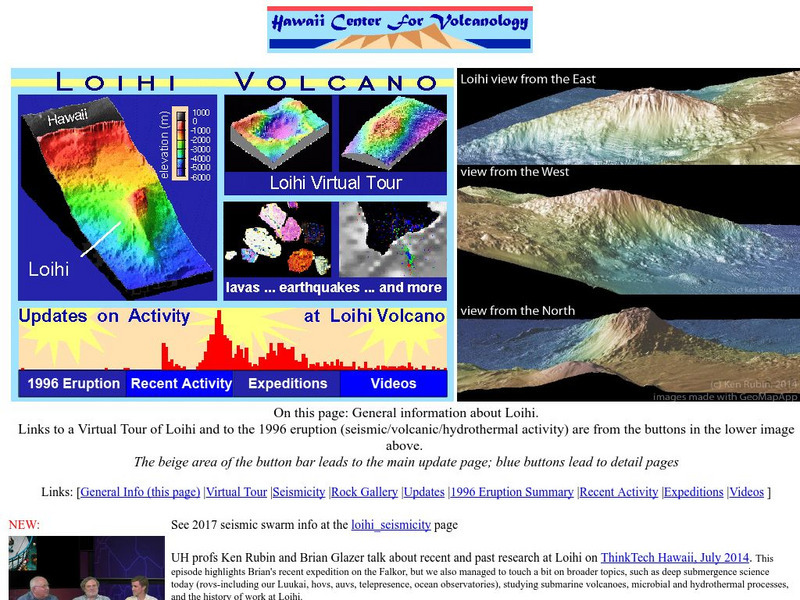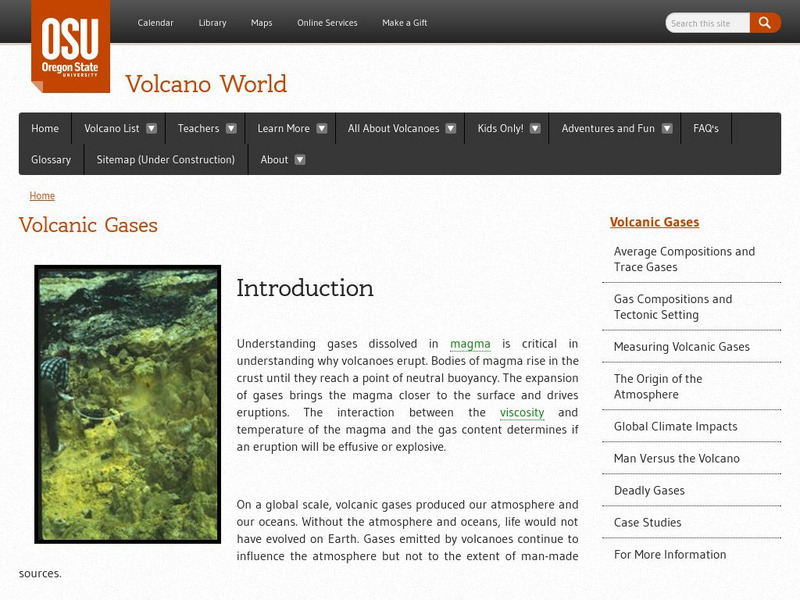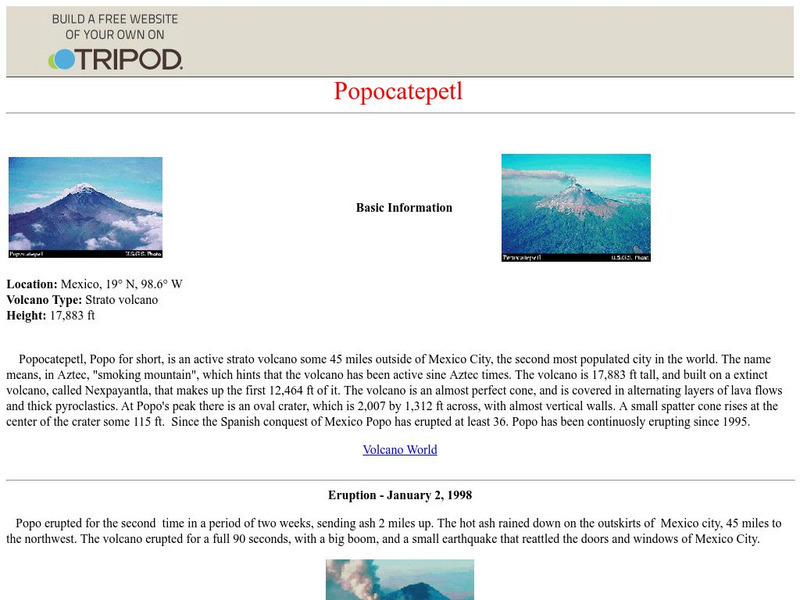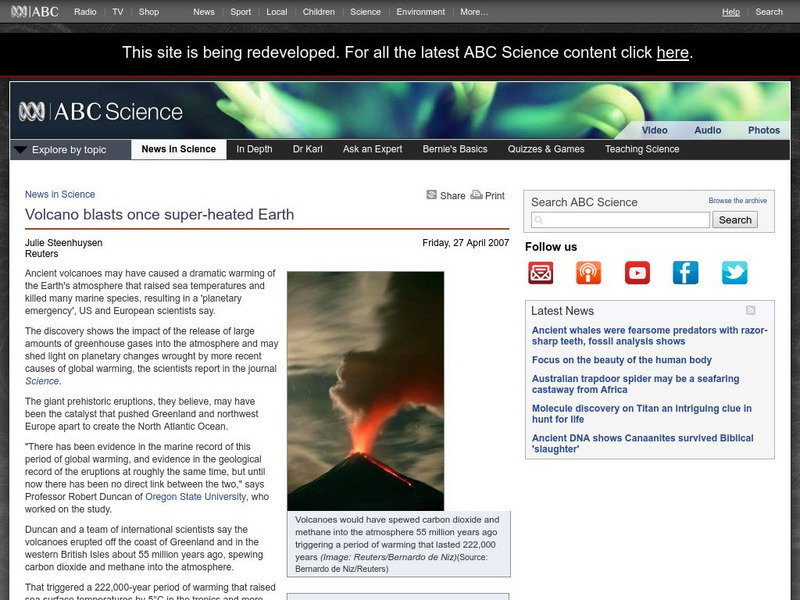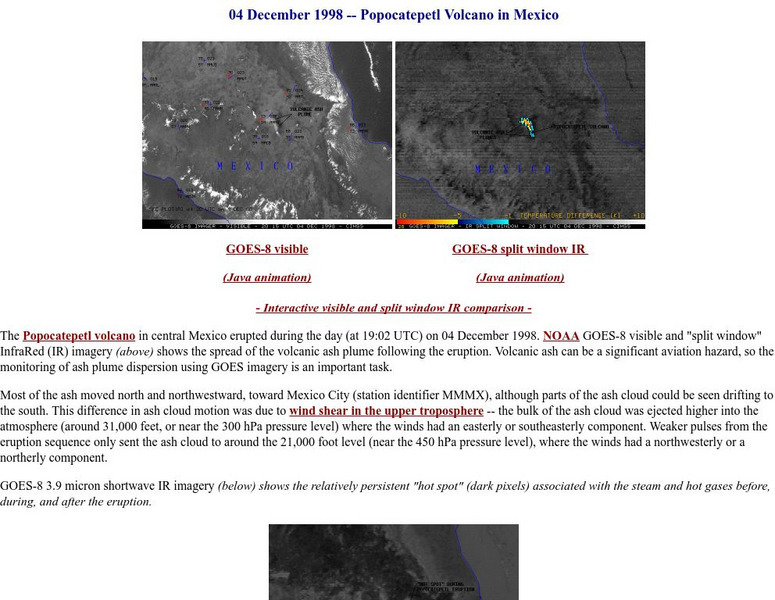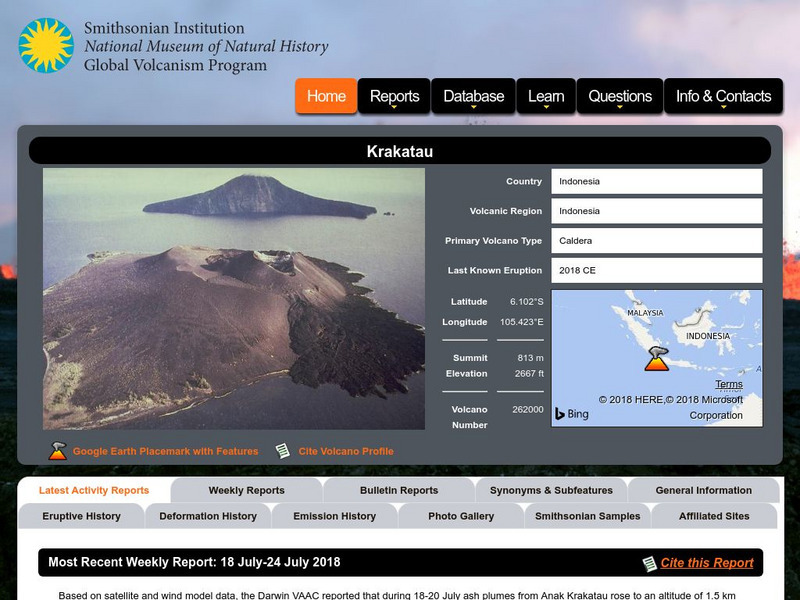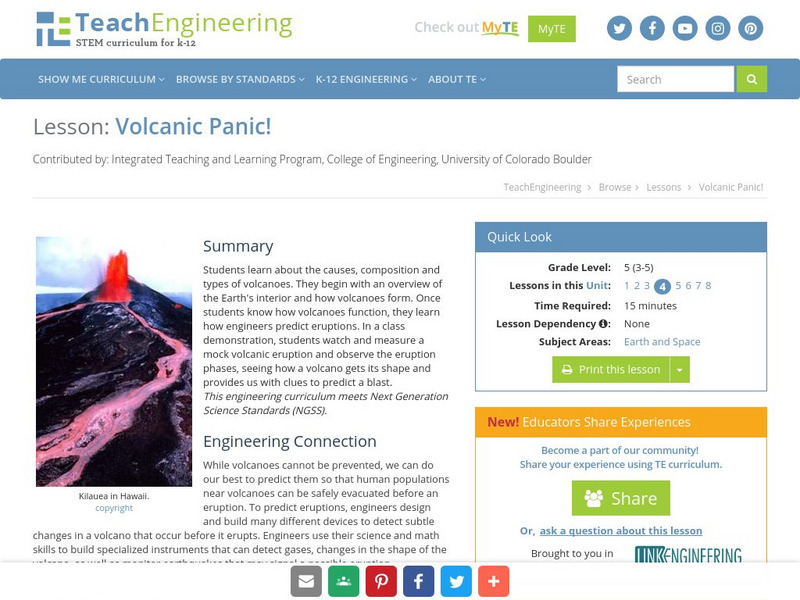Curated OER
National Park Service: Explore Nature: Views: Volcanism: Embark on a Journey
A journey into the depths of a volcano teaches students about volcanic rocks, eruptions, features, and locations. Also find out how volcanologists monitor activity and conduct scientific research on eruptions.
Other
College of New Jersey: Mt. Vesuvius
Interesting site on Pompeii. The first graphic you see is the city of Pompeii. Includes information and graphics about the volcano.
US Geological Survey
Us Geological Survey: Ring of Fire & Plate Tectonics
A massive amount of information on the Ring of Fire and plate tectonics. There are links to graphics and text. The volcanoes in the Ring of Fire are discussed in detail by area.
Science Education Resource Center at Carleton College
Serc: Yellowstone! A National Park on a Hot Spot
A lesson plan with an accompanying PowerPoint learning module for students where they learn about the volcanic features of Yellowstone National Park. They use spreadsheets to make various calculations, such as the volume of material...
Concord Consortium
Concord Consortium: Stem Resources: Earthquakes Around the World
In this interactive, students manipulate a computer model that shows where earthquakes and volcanic eruptions have occurred since 1960, to make predictions, collect data and look for patterns. Includes career connection, and a question...
University of Hawai'i
Hawaii Center for Volcanology: Loihi
Loihi is believed to be one of the youngest volcanoes in the Hawaiian chain. You can view elevation maps and even take a virtual tour.
Oregon State University
Volcano World: Eruption Styles
Study the different eruption styles with this reference page that discusses the characteristics of the eruption styles.
Science Fun for Everyone
Science Fun: Cool Off Volcanoes
Build your own volcano and make it erupt with this science experiment!
Oregon State University
Volcano World: Volcanic Gases
This site is a resource for understanding the gases that are dissolved in magma. Learn how it is critical to understand these gases because they give us clues to why volcanoes erupt.
Other
Popocatepetl
Basic information on the volcano Popocatepetl. Also includes brief information on the two eruptions in 1997 and 1998.
NASA
Nasa: Sci Jinks: The Sky Is Broken!
Explains the dangers of volcanic ash plumes to airplanes, such as the eruption in 2010 of the Eyjafjallajokull volcano in Iceland which greatly disrupted air traffic in neighbouring countries.
Science Struck
Science Struck: Facts About Mount Vesuvius
Read about the geology and history of Mount Vesuvius in Italy, how it was formed, its destruction of Pompeii and Herculaneum in AD 79, the next eruption in 1944, and what it is like today.
Read Works
Read Works: Deep Sea Detectives
[Free Registration/Login Required] An informational text about exploring an underwater volcanic eruption. A question sheet is available to help students build skills in reading comprehension.
University of Wisconsin
The Why Files: Volcanic Activity
A resource to help understand how volcanoes work and how the can affect their surroundings.
California State University
Csu: The Sourcebook for Teaching Science: Earth Systems Interactions
Explains what the four spheres of the Earth are and describes how volcanic eruptions affect the different spheres. Also provides a list of events that are examples of interactions.
Curated OER
Merriam Webster: Visual Dictionary Online: Volcano During Eruption
Labeled diagram of a volcano during an eruption.
Australian Broadcasting Corporation
Australian Broadcasting Corporation: News in Science: Volcano Blasts Once Super Heated Earth
From ABC News in Science, Julie Steenhuysen's article explores the results of ancient volcanic eruptions that caused a warming effect on the Earth and possibly caused the death of certain species.
University of Wisconsin
University of Wisconsin: Popocatepetl Volcano in Mexico
General information on the Mexican volcano. View graphics of Popocatepetl and learn about the eruption process.
Wikimedia
Wikipedia: Mayon Volcano
A Wikipedia entry on the Mayon Volcano, the most active volcano in the Philippines. Excellent photos and maps. Includes a log of recent eruptions.
Australian Broadcasting Corporation
Australian Broadcasting Corporation: News in Science: Vesuvius (World's Most Dangerous Volcano)
An article outlines the reasons why Vesuvius should be considered the world's most dangerous volcano.
ClassFlow
Class Flow: Plate Tectonics Volcano
[Free Registration/Login Required] This lesson will take several class periods. This lesson begins to look at how volcanoes are created.
Smithsonian Institution
National Museum of Natural History: Global Volcanism Program: Krakatau
The volcano Krakatau is in Indonesia. Learn about its background information, description, frequently asked questions, items of interest and useful links.
PBS
Nova: Seismic Signals
Scientists have determined that the earthquakes preceding volcanic eruptions are different than those that precede earthquakes. Discover the sounds and wave patterns produced by the three different types of volcanic seismic activities.
TeachEngineering
Teach Engineering: Volcanic Panic!
Students learn about the causes, composition and types of volcanoes. They begin with an overview of the Earth's interior and how volcanoes form. Once students know about how a volcano functions, they learn how engineers predict...


